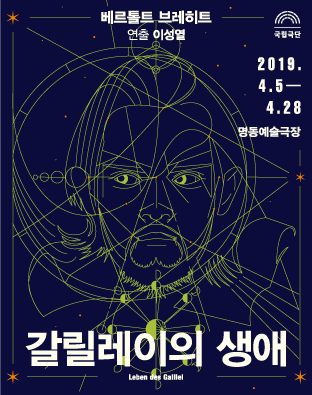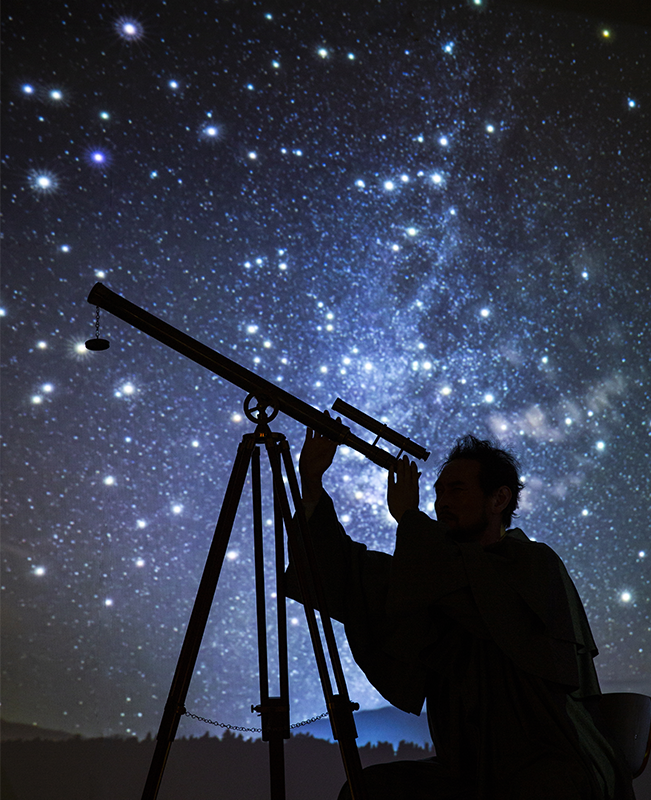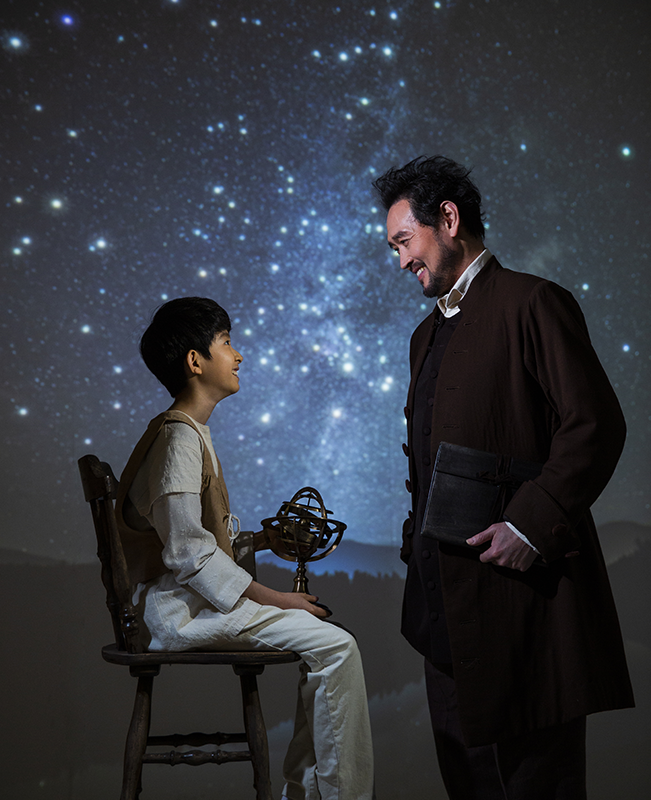
Leben des Galilei (Life of Galileo)
05 Apr, 2019~
28 Apr, 2019
-
Venue
Myeongdong Theater
-
Genre
Theater
-
Show Time
Weekdays 19:30 ㅣWeekends 15:00ㅣNo performance on Tuesday
-
Tickets
R 50,000KRW | S 35,000KRW | A 20,000KRW
-
Duration
170 minutes
-
Enquiry
cs@ntck.or.kr
Language Korean
* English subtitles will be provided on every Thursdays and Sundays.
Age Restriction Suitable for ages 14 and over
* Please ensure you arrive 30mins before the program time. The box office can be busy and you may need to queue.
* We will endeavor to admit latecomers at the first suitable opportunity, which may be the interval. For some Events late admission cannot be guaranteed.
* Re-entry is mostly NOT allowed. In an exceptional case of re-entering, you may be seated in alternate seat locations to avoid disruption of the performance.
* The discount on tickets will only be available when presented with the necessary papers or documents. Tickets have to be paid in full when they are not presented.

January 10th, 1610
Once we discover the fact, the “truth” collapses.
Bertolt Brecht, famously known as a critic of Hitler, lived in exile in “more countries than the number of his shoes” and had a reputation for being an awakened intellectual living in a dark era. Brecht expressed his insightful and interesting view on the world in Mother Courage and Her Children, The Caucasian Chalk Circle and other works. One of his works, Life of Galileo, regarded as one of his masterpieces, will be presented by Lee Sung-yol. Life of Galileo throws the audience into a world that had just witnessed the power of science and technology in post-World War II society. Though not well known in Korea, European theater groups in the UK, Greece, and Germany have consistently reinterpreted the work, where Brecht describes the life of one of the world’s greatest scientists in an objective and logical manner. You will not want to miss experiencing the rendezvous of these two masters.
“As regards obstacles, the shortest distance between two points can be a curve.”
Galileo described himself as a “betrayer of science” because he chose to forge a winding path to a new world instead of taking the straight road. Why did the intellectual who decided not to die as a hero feel such shame towards his works? The author wants to portray Galileo as an exceptional but also ordinary man, who frequently falls into distress like the rest of us.

SYNOPSIS
In 17th Century Venice, Galileo Galilei, the famous scientist and math professor, began his full-scale exploration of the planets after the introduction of the telescope. His scientific achievements, such as “there are mountains on the surface of the moon” and “there are sunspots on the surface of the sun” provided evidence for the heliocentric theory of Copernicus. However, Galileo was brought to trial for heresy because his research findings were deemed heretical by the Roman Catholic Church. Galileo agonizes over whether he should remain a conscientious scholar or compromise with the illogical view of reality upheld by the status quo.
Playwright
Bertolt Brecht (1898-1956) l German playwright, poet and theatre director
Brecht’s major works, such as Life of Galileo, Mother Courage and Her Children and The Caucasian Chalk Circle, set a milestone in the history of world theater. Brecht’s innovative theatrical technique of “making the familiar strange” compels the audience to understand reality in a more objective manner by representing the irrationality of the familiar, a method that left a strong imprint upon the history of theater. To this day, Brecht’s works are still actively performed around the world.
Director
Lee Sung-yol
Artistic director of the National Theater Company of Korea (NTC Korea)
With his sophisticated directing sensibility, Lee Sung-yol presents delicate performances counterpoised by a deep exploration of what it means to be human. In 1996, he created Baeksukwangbu, a theater company that supports the experimental theater community, where he works as a representative and senior director. In December 2017, Lee Sung-yol was appointed as the artistic director of the National Theater Company of Korea. In his works, he makes a continual effort to reconcile social reality with the stage.






